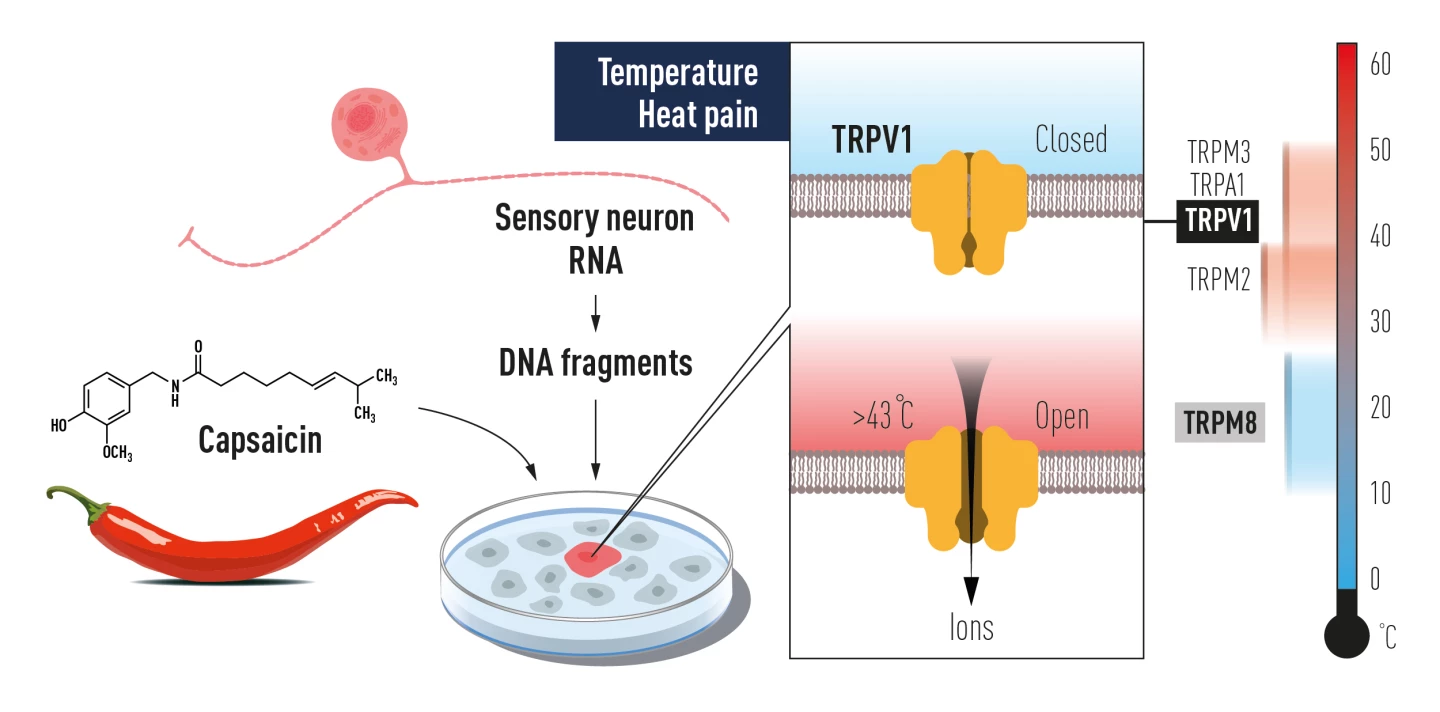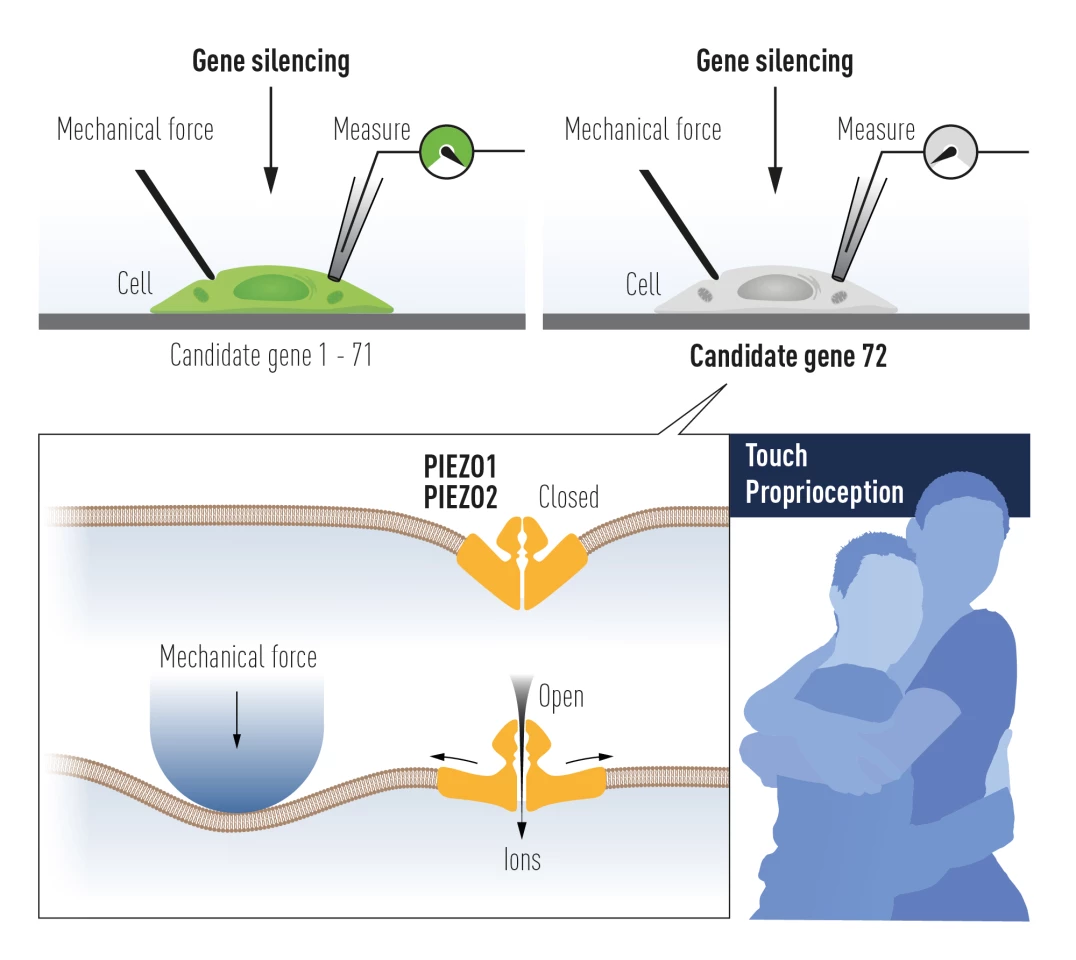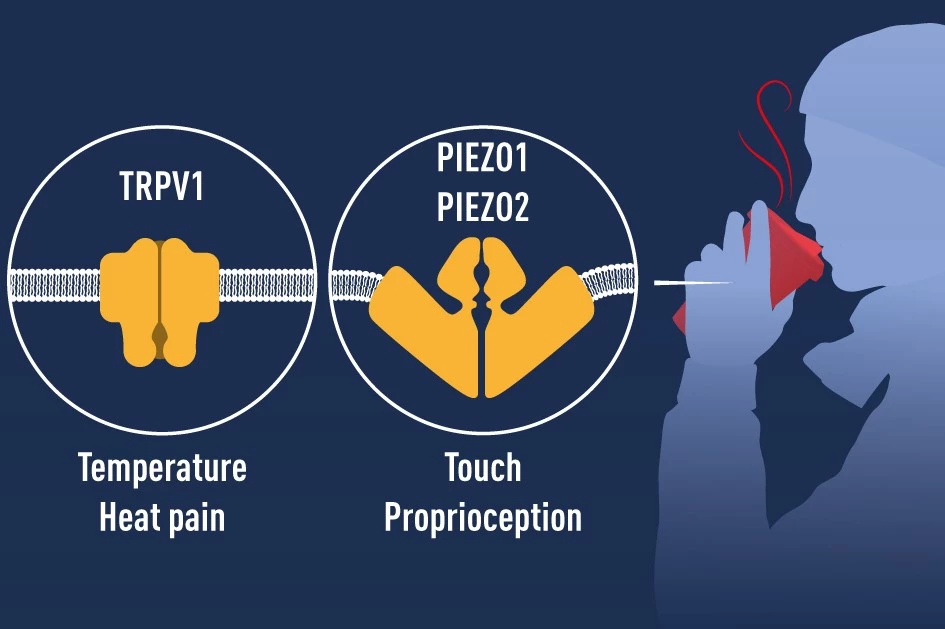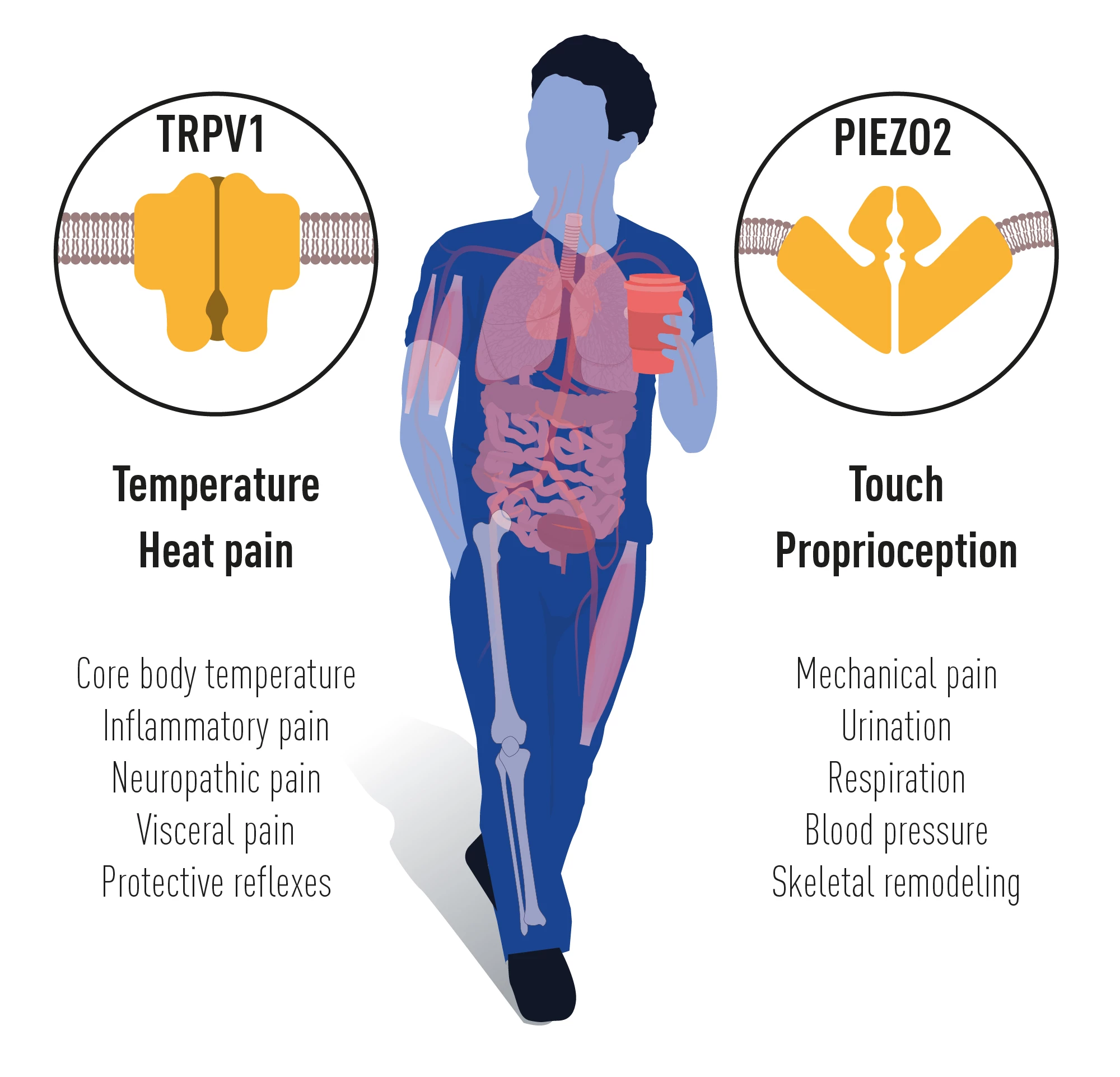The 2021 Nobel Prize in Physiology or Medicine has been awarded jointly to David Julius and Ardem Patapoutian, for their work uncovering the receptors that allow us to perceive temperature and pressure.
Our sense of touch is comprised of a complex web of sensations, involving temperature, mechanical pressure, pleasure and pain. Exactly how the body can differentiate between, for example, the enjoyable warmth of sunlight on our skin and the pain of touching a hot stove, was difficult to unravel.
But a major breakthrough came in the 1990s, when David Julius and his team began investigating the receptors that respond to painful heat. To do so, they used the chemical compound capsaicin, which creates the burning sensation associated with chili peppers. At the time it was unknown how the compound actually did this, so Julius’s team scoured a DNA library to identify specific genes associated with the process.

Experiments exposing cultured cells to capsaicin eventually revealed a single gene that encoded for a protein that responded to heat. Later named TRPV1, this receptor was found to activate at temperatures above 43 °C (109 °F), opening an ion channel that sends a pain signal to the brain.
The discovery of TRPV1 led to the discovery of other temperature receptors, including TRPM8 which is activated by cold. TRPM8 was independently identified by both Julius and his now-co-Nobel-Prize-winner, Ardem Patapoutian.

Around the same time, Patapoutian and his team were investigating receptors that responded to mechanical pressure. After noticing that a certain cell line produced an electric signal when poked, the team knocked out genes sequentially until they found one that, when switched off, made the cells unable to respond to the prodding. From there they traced the culprit to new ion channels that they named Piezo1 and Piezo2.
Further study revealed that this class of channels play a variety of critical roles in the sense of touch and other physiological processes, such as maintaining blood pressure, respiration, and bladder control.
Together, Julius and Patapoutian’s discoveries paved the way for a huge body of work unraveling the mysteries of our sense of touch.
The rest of the 2021 Nobel Prizes will be awarded through the week.
Source: Nobel Prize








